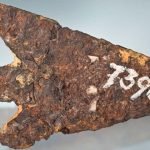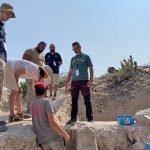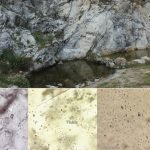This bronze age arrowhead was made out of a meteorite
It’s sometimes hard to remember that meteorites have been hitting our planets for millions of years.
And some of them are made of valuable materials...
Filter-feeding dinosaurs? Ancient reptile ate like today’s whales!
Imagine a dinosaur-like creature swimming around, opening its giant mouth, and swallowing up loads of tiny shrimp in one go.
That might sound like a...
Ancient lake caused global warming in ice age, study shows
Long ago, during a time called the Late Paleozoic Ice Age, the Earth got really warm. This wasn't because of cars or factories; it...
New study reveals our Earth’s ancient secrets
Ever thought about how life began on Earth?
Some scientists believed that a process called plate tectonics was essential. But new findings are challenging that...
Scientists use supernovae to narrow the search for alien civilizations
When you’re searching the skies for signs of extraterrestrial intelligence, it’s not a bad idea to be aware of cosmic flares.
In a sense, that...
Scientists find a novel approach to tackle climate change: a tethered solar shield
With Earth warming up quickly, scientists around the world are brainstorming diverse strategies to limit the impacts of climate change.
István Szapudi, an astronomer at...
Climate change is rising winter waves in California, study finds
Climate change has become a hot topic around the globe. Everyone talks about how our planet is heating up. This global warming affects us...
Why Venus looks much younger than it is
Venus is about 4.5 billion years old, but looks much younger.
A high-energy, rejuvenating boost it received in its earliest years may explain its youthful...
Scientists discover 2,000-year-old Roman house in Malta
A group of scientists and students from the University of South Florida have made an exciting find in the country of Malta, located in...
Scientists discover ancient ocean water in the Himalayas
An exciting discovery in the Himalayas has given scientists a glimpse into our planet's past.
In a nutshell, a team from the Indian Institute of...










